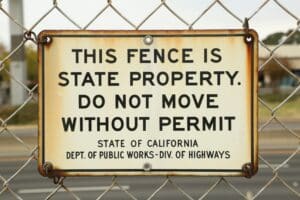Security Has Changed — And It’s Time to Think Beyond Cameras
You’ve probably noticed it already. Businesses everywhere are tightening up security—but it’s not just alarms and surveillance systems anymore. It’s physical deterrence. It’s visible protection. It’s access control at the edge of your property.
In short:
Iron gates are making a comeback.
Not just for homes—but for businesses that want to project strength, increase security, and make a real first impression.
This blog is your guide to why more commercial properties are investing in custom iron driveway gates—and what it means for your bottom line.
Let’s break it down.
Why Businesses Are Installing Iron Gates (It’s Not Just About Looks)
Security isn’t just about what happens after a threat—it’s about preventing it in the first place.
Iron gates act as both a physical barrier and a psychological deterrent. And unlike cameras, they stop intrusions—not just record them.
But there’s more:
-
They reduce liability (by limiting access to dangerous areas)
-
They may lower your insurance premiums (by improving risk profiles)
-
They create a stronger brand impression (you look established, not exposed)
Let’s walk through each of these in detail.
Better Security Without the “Fortress” Feel
TL;DR:
Iron gates help prevent problems before they happen. They stop vehicles, slow foot traffic, and send a message: This property is protected.
What Iron Gates Actually Do for Business Security:
-
Limit Entry Points
-
No more random walk-ups or drive-ins. With a driveway gate, access is defined and controlled.
-
-
Control After-Hours Access
-
Set automatic schedules to open/close at certain times, or use remote access for deliveries or staff.
-
-
Stop Unauthorized Parking or Dumping
-
Common issue? Solved.
-
-
Pair With Cameras for a Complete Setup
-
Gates + surveillance = protection and accountability.
-
“Installing a physical gate is one of the top deterrents for commercial break-ins.” — Security.org
Lower Insurance Risk = Lower Premiums
TL;DR:
Many insurance providers offer discounts for businesses with access control systems—including gates.
Why? Because a secure perimeter:
-
Reduces the chance of theft or property damage
-
Prevents unauthorized use of facilities
-
Lowers liability for injury or vehicle incidents
💡 Example:
A Sacramento contractor we worked with installed a steel swing gate after a late-night theft. Their insurer reduced their commercial property premium by 12% the following year.
Pro tip: Ask your insurer about discounts for gated access. They may require signage, photo documentation, or integration with security systems.
It’s Not Just Security—It’s Reputation
TL;DR:
A gate doesn’t just stop intruders—it sends a message.
You’re not a fly-by-night shop. You’re a serious business that protects its people, equipment, and image.
Visual Impression Matters
-
Clients notice. Whether it’s a dentist’s office, repair shop, or winery, your entrance is your first impression.
-
Partners and vendors notice. When you look professional and secure, you’re treated that way.
-
Team members notice. Employees feel safer coming and going when there’s a visible security structure in place.
💡 Real-world comparison:
A plain chain-link fence says “utility.”
A custom iron gate with your logo? That says “established.”
Want to explore how material choices impact perception and performance? Check out our guide to iron vs. steel gates.
The Most Common Gate Types for Businesses
| Gate Type | Best For | Pros |
|---|---|---|
| Sliding Gate | Commercial driveways, loading zones | Saves space, great for automation |
| Swing Gate | Offices, retail properties | Classic look, strong security |
| Vertical Lift | Warehouses, industrial facilities | Maximum security, minimal footprint |
| Iron & Wood | Client-facing businesses | Warm + strong; fits rustic or luxe brands |
Most gates can be fitted with automation, keypad entry, cameras, and even remote smartphone control.
Cost Breakdown — What to Expect
TL;DR:
Commercial gates cost more than residential ones—but not by much. And the ROI is worth it.
-
Basic manual iron gate: $4,500 – $7,000
-
Automated sliding or swing gate: $8,000 – $13,000
-
Custom gates with branding or access features: $11,000 – $18,000+
Remember: this is a capital improvement. It can increase property value and may be tax-deductible under Section 179.
Why Irish Iron Is a Go-To for Commercial Gates
-
Durability-first designs: Our gates are made to take a beating and still look good.
-
Fully custom options: We build to match your brand and your site—no one-size-fits-all.
-
Smart tech ready: Keypads, RFID, remote openers, solar-powered systems—we install it all.
-
Local expertise: We know Sacramento code, HOA rules, and the right materials for local weather.
Want to see the level of detail that goes into each project? Explore how Irish Iron blends security and craftsmanship.
You don’t just want a fence.
You want a statement that works as hard as your business does.
Final Thoughts: You Don’t Need to Be a Fortune 500 to Look Like One
A well-designed iron gate does more than improve security.
It builds trust.
It reduces risk.
It makes you look like a business that’s here to stay.
Whether you’re protecting tools, controlling customer flow, or just upgrading your property’s appearance—now is the time to install a gate that works for you.
👉 Talk to Irish Iron about custom options for your business. We’ll walk you through everything—designs, pricing, install timeframes—without the pressure.


